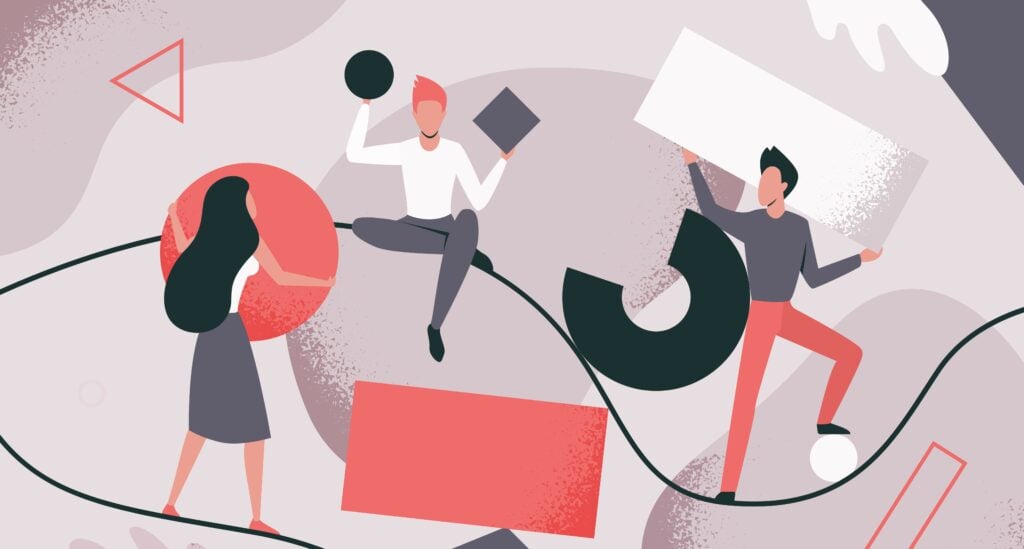ADHD and anxiety: Signs, similarities, and treatment
Reviewed by Susan Radzilowski, MSW, LMSW, ACSW

It’s common for people with attention-deficit/hyperactivity disorder (ADHD) to also struggle with anxiety. According to the Anxiety and Depression Association of America, about half of all adults with ADHD also meet the criteria for an anxiety disorder.1


How to tell the difference between ADHD and anxiety
ADHD and anxiety disorders can share symptoms such as:
- Trouble socializing
- Difficulty meeting deadlines
- Fidgeting
- Trouble paying attention
- Problems with executive function
- Difficulty starting and finishing tasks
- Outbursts or struggles with emotional regulation
- Isolation
These overlapping symptoms can make it tricky to tell the difference between anxiety and ADHD. It can also be hard to figure out which condition is behind which symptom. For example, if you tend to fidget, it could be due to either the nervousness of anxiety or a reduced attention span from ADHD.
If you’re struggling to understand the difference between anxiety and ADHD, speaking with a therapist can help. They can help you develop a treatment plan for any symptoms impacting your life, regardless of their source.
Does ADHD cause anxiety?
ADHD and anxiety often occur together, but experts don’t exactly know why. It’s possible that the stress related to living with ADHD leads to anxiety. Some research suggests that ADHD and anxiety may also share genetic or environmental risk factors.2
Treating ADHD and anxiety
Having both ADHD and an anxiety disorder can make it challenging to cope with stress and deal with daily tasks. Fortunately, it’s possible to treat and manage both conditions together. Talk therapy, medication, and daily coping techniques are all effective treatment options.
Therapy for ADHD and anxiety
Many types of therapy can help manage symptoms of both ADHD and anxiety disorders:
- Cognitive behavioral therapy (CBT) helps people change their thought patterns, leading to positive changes in behavior and less anxiety.
- Acceptance and commitment therapy (ACT) relies on observance and acceptance to help people make committed changes. It’s often useful for people who struggle with executive dysfunction, anxiety, or perfectionism.
- Dialectical behavior therapy (DBT) is a highly structured form of treatment. It incorporates CBT, mindfulness principles, skills training, goal setting, one-on-one sessions, and group therapy.
Anxiety and ADHD medication
Medications can help people with ADHD focus. However, stimulant ADHD medication like Adderall can sometimes cause or worsen anxiety symptoms. Because of this, people with both conditions may find nonstimulant options or antianxiety medications more helpful.
A doctor can help you determine if medication is the best fit to help you manage your symptoms.
Coping techniques
Self-regulation techniques and self-care practices can help you manage symptoms of ADHD and anxiety. It’s important to:
- Get enough sleep each night
- Move your body and get outside
- Socialize regularly
- Eat nutritious food
- Use mindfulness practices like meditation or deep breathing to help reduce stress
- Keep a regular schedule (that includes regular breaks and unstructured creative time)
- Organize your space
- Set realistic timelines for tasks
- Write down your thoughts and feelings in a journal
Getting help for your ADHD and anxiety
ADHD and anxiety can be difficult to manage on your own. If you’re struggling, speaking with a mental health professional can help. Browse our therapist directory to find a licensed specialist near you.
Other ADHD comorbidities
Anxiety is just one of several common conditions that can co-occur with ADHD. ADHD has many other believed comorbidities, including:3
- Autism spectrum disorder (ASD)
- Tic disorders
- Depression
- Bipolar disorder
- Oppositional defiant disorder (ODD)
A licensed mental health professional can help you navigate these conditions and create a healthy plan to manage any symptoms that impact your life.

Sources
About the author
The editorial team at therapist.com works with the world’s leading clinical experts to bring you accessible, insightful information about mental health topics and trends.
Related articles

Attention-deficit/hyperactivity disorder (ADHD)
ADHD is a disorder characterized by inattention, hyperactivity, and/or...

Initiation and activation: 2 exercises to help kids focus
Many students struggle to get started on tasks because they simply don't know...

ADHD is usually diagnosed in childhood, but adults can be diagnosed with it...
